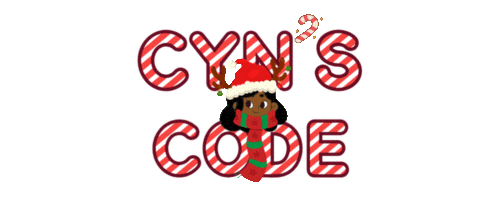
If you’re in school right now, you probably haven’t had the pleasure of doing a full-on job search. It can and will get stressful. Even professionals with several years of experience find the job-search process tedious and draining. It’s especially true when trying to find a technical role (e.g., data engineer, data analyst, software engineer, etc.).
Other industries have rigorous standards for breaking their barrier of entry. For example, actuaries must pass a series of exams. For tech, it’s no different, and expect to get rejection emails or ghosted from recruiters.
As a senior in college, it can become nerve-racking to leave an environment you’ve been accustomed to and hop into the real world ✨ aka adulthood ☕️. Then there’s the added pressure to find a job. And sometimes, there’s a FOMO component to it as well. Suppose you are unemployed while your friends are starting their careers or business. In that case, this can spiral downwards into a negative cesspool of feeling inadequate or stuck in life. ~Congratulations, you’re experiencing a quarter-life crisis~
Listen: if you plan on entering the tech workforce or switching into tech you need to plan ahead. Period!
Depending on the roles you want to apply to, your job search timeline will look a little different. But for the most part, there are usually 2 major portions. The technical interview and the behavioral interview.
A Breakdown of the Interview Process

Let’s say you want to get a job as a software engineer. There’s usually a technical assessment in the beginning to screen applicants. These questions cover various data structures and algorithms. They are similar to what you would find on Hackerrank or Leet Code. In my opinion, these questions are like a mild version of competitive programming. They are not easy… unless you do competitive programming for fun or sport!
Once you’ve taken the assessment and scored high enough, you’ll move to the pair programming session. You’ll be paired with one or two engineers from the company you want to get into here. They give you a problem, you try to solve it most efficiently, and you also walk through your code (to show how great your communication skills are). Sometimes, a couple of behavioral interview questions get thrown into this part of the interview process.
Once you’ve made it through that round, you’ll be invited to interview onsite. You’ll spend a whole work day going through rounds of technical and behavioral questions 😮💨.
The interview process can look a little different. You may be given a take-home assignment instead of the coding assessment, or you may need to whiteboard a solution instead of doing the pair programming bit.
The interviewing process takes a while to get through, and you’re most likely interviewing with several companies around the same time. And You should be interviewing multiple companies to get as many offers as possible to negotiate better or assess all your options and choose what benefits you the most.
Prepare Before the Interviews

But the journey to obtain your new job is long. The interviewing stage can range from a few weeks to 2 or more months. But before those technical interviews start, you’ll need to STUDY!
Practice Leet Code problems, review notes from your CS classes or stats class and go over common questions asked during ML interviews. Practice practice practice. And in the meantime, build your portfolio on LinkedIn, Github, Youtube, or a personal website.
The competition is fierce for these open roles in tech! And it takes time to create a portfolio, be comfortable recognizing solving Leet-Code-like problems or familiarize yourself with standard data science algorithms. This is why planning 6 months to a year in advance will save you the heartache and desperation of feeling like a failure after your nth rejection email.
And if this is your first job out of college, you have the added hassle of finding entry-level positions that require at least 2-5 years of work experience. (I’ll write a blog post on keywords to use when looking for your first job or switching to tech).
Having a portfolio with more involved projects (not some cookie-cutter repo like a recipe website) or demonstrating your abilities by contributing to an open source project will be beneficial.
How to Avoid the Post-College Job Search

Let’s just say you’ll need to do a lot to obtain your first job. However, there is another way to bypass that first job conundrum.
Receive a full-time offer when you’ve completed an internship.
Granted, the internship job hunt can be as strenuous as a regular job hunt; I’d say students are handled with kid gloves. Use that to your advantage 😤.
For example, I interned with a company in 2019 and was offered a full-time position once I graduated… I didn’t know the world would literally shut down for months in 2020; I graduated during the height of the pandemic! But my full-time offer was never rescinded. I had put in the work in 2018 to get the internship in 2019, which led to a job straight out of college during the pandemic in 2020.
It took me a few months to get my internship role, but it was ultimately worth it.
In tech, landing a job is usually a numbers game (unless you leverage your network exceptionally well). You’ll need to plan out well in advance.
